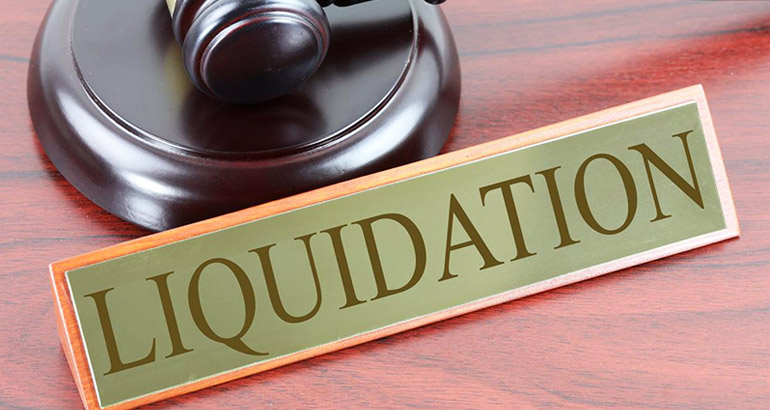Company Liquidation Can Be Fun For Anyone
Company Liquidation Can Be Fun For Anyone
Blog Article
All about Company Liquidation
Table of Contents7 Easy Facts About Company Liquidation DescribedIndicators on Company Liquidation You Need To KnowFascination About Company LiquidationCompany Liquidation - QuestionsCompany Liquidation Can Be Fun For Everyone
A liquidator is particularly appointed to manage the winding up of a company's affairs in order for it to be shut down usually when the business is declaring bankruptcy. The liquidator is a neutral 3rd party that manages the sale of company properties in order to pay off any type of outstanding financial debts.Their duty includes, but is not limited to: Neutral Movie director: A liquidator is tasked with functioning as an objective 3rd party to look after the entire firm liquidation process. Create Statement of Affairs: Liquidators have to produce a comprehensive statement of events document. This paper is distributed to financial institutions, describing the existing monetary status of business at the time of its liquidation.
After the liquidation of a firm, its existence is removed from Firms Home and it discontinues to be a legal entity. If supervisors navigated the process without issue, there would be no charges or individual obligation for firm financial obligations expected. Now, with a clean slate, directors can discover new business possibilities, though specialist examination is recommended.
All About Company Liquidation
If more than 90% of all firm investors concur, liquidation can take place on short notice within 7 days, the minimal statutory notification for financial institutions. Typically, the bigger the liquidation and the even more properties and funding the service has, the longer the procedure will certainly take. 'Do I need to pay to liquidate my company?', the solution will certainly depend upon whether your organization has any type of properties leftover when liquidating.

We understand that no 2 companies coincide, which is why we will certainly take the time to be familiar with your organization so we can recommend the very best program of activity for you. We only function in your finest passions, so you can be totally confident in the service we supply.
An Unbiased View of Company Liquidation
In the UK, there is a set process to shutting down or restructuring a limited firm, whether it is solvent or bankrupt. This procedure is referred to as liquidation and can only be dealt with by a qualified bankruptcy specialist (IP) according to the Insolvency Act 1986. There are 4 main kinds of firm liquidation procedure: Lenders' Voluntary Liquidation (CVL); Obligatory liquidation; Management; and Members' Volunteer Liquidation (MVL).

In these situations, it is essential that the business ceases trading; if business proceeds to trade, the supervisors could be held directly accountable and it could cause the insolvency professional reporting wrongful trading, called misfeasance, which might bring about legal action. The supervisors designate a bankruptcy specialist and as soon as this has been agreed and verified, there is a meeting with the shareholders.
Of training course, if there are no shareholders, this action of the procedure is not needed (Company Liquidation). The IP takes control of the company and begins the business liquidation process. The directors are no much longer associated with what occurs, consisting of the sale of the business's assets. If next page the supervisors desire any of the properties, they can inform the IP.
Getting My Company Liquidation To Work
The main difference is that the firm's creditors applied to the court for a winding up order which compels the financially troubled company right into a liquidation procedure. Creditors take this activity as a last resort due to the fact that they have not obtained repayment with other kinds of settlement. The court selects a bankruptcy professional, also referred to as a main receiver, to conduct the obligatory company liquidation procedure.
This kind of firm liquidation is not volunteer and supervisors' conduct is reported to the UK's Secretary of web State once the liquidation procedure has been finished. Consequently, any kind of director that falls short to accept the IP or has been included in supervisor misconduct, or an illegal click now act, may cause serious repercussions (Company Liquidation).
It is utilized as a means to shield the business from any type of lawful action by its lenders. The supervisors of the firm agree to make routine repayments to resolve their debts over a period of time.
Facts About Company Liquidation Revealed
This offers the firm with time to develop a plan going forward to save the firm and avoid liquidation. Nevertheless, now, directors hand control of the firm over to the selected administrator. If a business is solvent but the supervisors and shareholders intend to shut the company, a Participants Voluntary Liquidation is the right option.
The firm liquidation procedure is taken care of by a liquidator designated by the supervisors and investors of the company and they must authorize a declaration that there are no financial institutions continuing to be. The liquidation process for an MVL resembles that of a CVL in that properties are realised however the profits are dispersed to the supervisors and the investors of the firm after the liquidator's fees have been paid.
Report this page